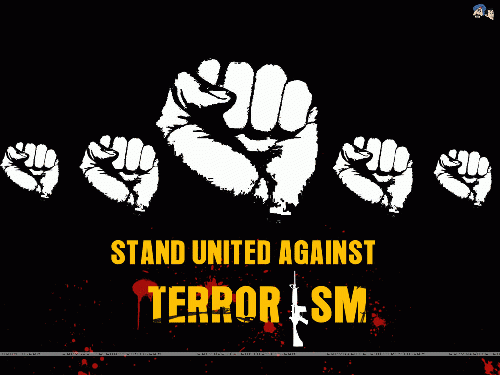Pakistan is fighting a protracted war for over a decade now for its lost identity. The very symbols of Pakistan have been
attacked and its people slaughtered. The craven attack on Ziarat Residency in
Quetta on June 14, 2013, is one of many incidents that are evidence of Pakistan
fighting a protracted war for its ideals and survival. BLA, a banned
organization in Pakistan with separatist tendencies, chose to attack an
otherwise old building with little worth had the father of the nation,
Quaid-i-Azam, not spend his last days in it. The Ziarat residency after Quaid's
stay was a symbol of his ideals for the generations to come. BLA along with
other terrorist organizations are in a grave misunderstanding that by erasing
the symbols it would be able to shatter the ideals of Quaid. Pakistan's high
resolves to rebuild the Ziarat residency shows that buildings can be demolished
but the hearts cannot be emptied of the respect and honour for Quaid-i-Azam.
Stand United Against Terrorism by santabanta.com
These are only 3 of the 400 different terrorists incidents that have taken place throughout Pakistan. Time and again the people of Pakistan have been tested and its security apparatus challenged but there seems to be little or no response as a united nation. The perpetrators behind these heinous activities are bent to destroy Pakistan through a policy of thousand cuts and isolate Pakistan around the world.
The debate in Pakistan who is responsible for these heinous activities has been ongoing for the past decade. By now it is pretty much clear that though the activities are carried out by local people, there funding and training is done by foreign elements in most of the cases. The leading financier and training source of terrorists is India. India has been pulling the terrorists string by funding and arming them to subdue Pakistan.
The evidence of Indian covert activities
in Pakistan was correctly highlighted by US Secretary of defense, Chuck Hagel
in 2011 when he said in speech that, "India for some time has always used
Afghanistan as a second front, and India has over the years financed problems
for Pakistan on that side of the border". And now more appropriately the former
Indian Army Chief General VK Singh has confessed that Indian military intelligence
was involved in sensitive covert operations in Pakistan. Sources reveal that
the Technical Services Division (TSD) of the Indian Army carried out Operation
Deep Strike (Pakistan).
It is very clear that foreign involvement is keeping the furnace of terrorism burning in Pakistan but it is the responsibility of the people of Pakistan to give a united and unanimous response to all such heinous activities. It would be naà �ve to think that without having good relations with India, Pakistan cannot restore peace in the country. The most important thing to be done is to track and completely destroy the terrorists and their networks and duly highlight the foreign involvement in such activities. India on the other hand must focus on its internal matters and must stop all covert activities in Pakistan because this menace of terrorism can at any time merge with unrest in Indian held Kashmir and create havoc for India.





